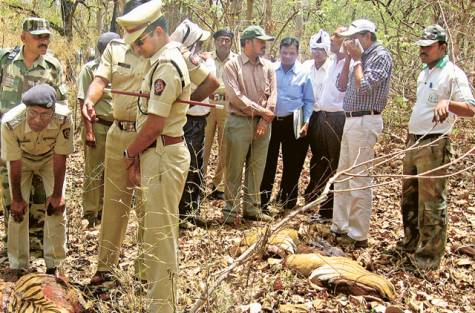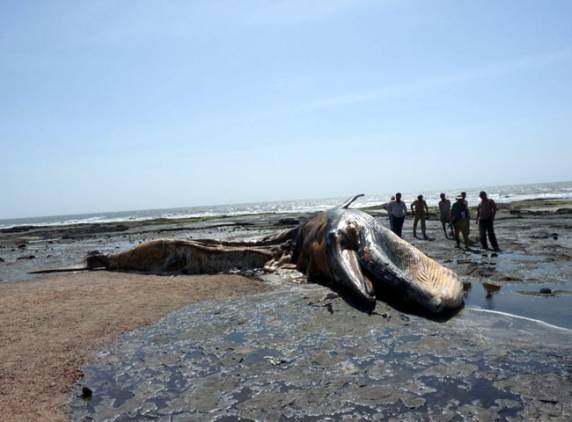In a shocking incident, the mutilated body of a tiger has been found outside the Tadoba Tiger Reserve near Nagpur in Maharashtra. Poachers took away the head, paws and vital organs of the tiger, leaving behind a chopped off tail and other body parts stuffed in gunny bags dumped on a highway.
Warning: Wild Elephants spotted near your Home
In south India where wild elephant population is abundant, the elephant corridors are now infested with tea gardens, farms, villages. Consequently, human elephant conflicts are common and on the rise. Now, to tackle the delicate issue, one man has come up with a simple yet brilliant solution.
Snare Scare for Tigers of India
Old habits die hard. This was found to be true after forest department officials in Karnataka found at least 80 snares in the protected forest covers of Bandipur and Nagarhole national parks in the last 3 months. It seems that poachers of the area have shunned firearms and started re-using the traditional snares and traps to injure and kill tigers.
Kawal becomes India’s 42nd Tiger Reserve
Elevating the number of protected areas in the country and giving the national animal a little more space to roam freely, Kawal Wildlife Sanctuary in Adilabad district of Andhra Pradesh has been officially named as the 42nd Tiger Reserve of the country. The area will not have a core area, a buffer zone and will get funding from the National Tiger Conservation Authority (NTCA) to ensure the tigers have a safe new home.
Poll Results: Most People think Camera Traps can put a Stop to Poaching
When we asked our readers if they liked the way technology was used to aid protection of wildlife, most said the move was excellent. 90 percent believed that the installation of camera traps could reduce poaching of wild animals to a large extent.
Extinct Corals make Gujarat Coasts their Home once again
For the first time in the country, beginning a new phase in species conservation, fragments of locally extinct coral reefs have been trans-located and re-introduced in the coastal waters of Gujarat. The corals were collected from Lakshwadeep and relocated 1500 kms away to the coast town of Mithapur.
Boxer turns Poacher to make Fast Bucks
22 year old junior level boxer, Meetu Singh had a promising future. He was well built, had both the strength and agility needed by a professional boxer and had represented Himachal Pradesh at the national level. But boxing could not satisfy his greed and that is why the sportsman turned his attention to a different kind of sport killing leopards and selling the animal parts for lakhs. The boxer’s fast road to affluence ended Friday though when police caught him red handed with his latest loot.
Western Ghats Medicinal Plants face Extinction Threats
A new government approved study at the Kalakkad Mundanthurai Tiger Reserve (KMTR), has found out that around 58 species of medicinal plants found in the Western Ghats are threatened and can become extinct if strict laws and conservation efforts are not made to save them.
Corbett Tigers get the E-eye
The 800 sq. km of Corbett National Park in Uttarakhand is now ready to fit in to a small tv screen. India’s first national park has now also become the first reserve to be equipped with E-eye high-tech infrared and thermal imaging cameras, that will allow 24×7 surveillance of the tiger reserve.
Rising Sea Animal Deaths in India’s South-West Coast
Last month two Giant Baleen Humpback whale sharks washed ashore dead on the Mumbai-Thane coast. Earlier a Bryde’s whale shark was found at Ratnagiri shores, 250 km away from Mumbai. With dead dolphins and Olive Ridley Turtles also spotted at regular intervals on the coast of Maharashtra and other south-west regions shores, there is fear that the deaths are not natural but caused by human errors.
Endangered Fish Species Thrives again in Maharashtra River
The Mahseer or Deccan Mahseer is an indigenous species of fish which was found in the Indrayani river flowing in India’s western state of Maharashtra. The fish was last sighted 14 years ago until it disappeared due to excessive pollution of the waters and urbanization. But thanks to the efforts of a conservation organization, today the fishes have again made Indrayani their home.










